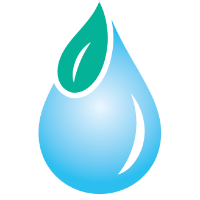Daugherty Water for Food Global Institute

Daugherty Water for Food Global Institute: Faculty Publications
Date of this Version
2016
Document Type
Article
Citation
Remote Sensing of Environment 184 (2016) 628–644.
Abstract
This paper describes the image acquisition and processing methodology, including surface emissivity and atmospheric corrections, for generating surface temperatures of two active hydrothermal systems in Yellowstone National Park. Airborne thermal infrared (8–12 μm) images were obtained annually from 2007 to 2012 using a FLIR SC640 thermal infrared camera system. Thermal infrared image acquisitions occurred under clear-sky conditions after sunset to meet the objective of providing high-spatial resolution, georectified imagery for hydrothermal monitoring. Comparisons of corrected radiative temperature maps with measured ground and water kinetic temperatures at flight times provided an assessment of temperature accuracy. A repeatable, time-sequence of images for Hot Spring Basin (2007–2012) and Norris Geyser Basin (2008–2012) documented fracture-related changes in temperature and fluid flow for both hydrothermal systems, highlighting the utility of methods for synoptic monitoring of Yellowstone National Park's hydrothermal systems.
Included in
Environmental Health and Protection Commons, Environmental Monitoring Commons, Hydraulic Engineering Commons, Hydrology Commons, Natural Resource Economics Commons, Natural Resources and Conservation Commons, Natural Resources Management and Policy Commons, Sustainability Commons, Water Resource Management Commons


Comments
U.S. government work.